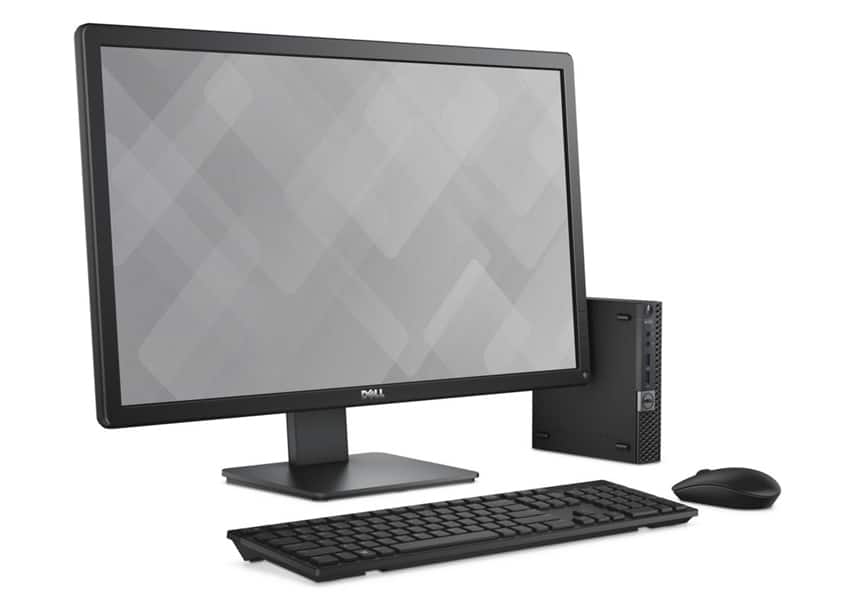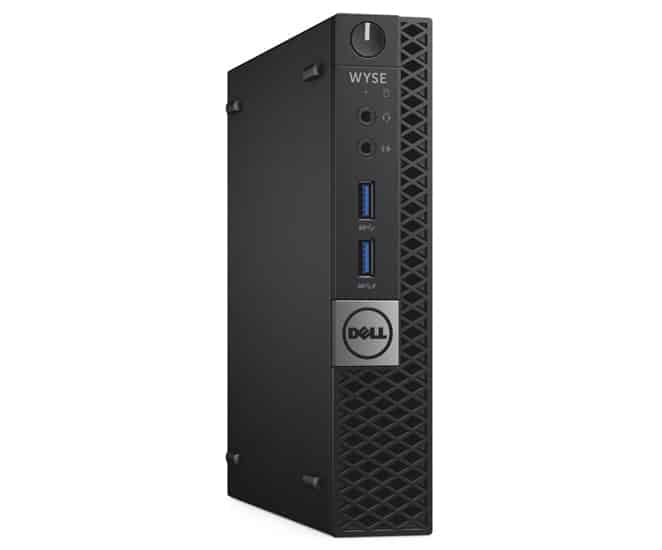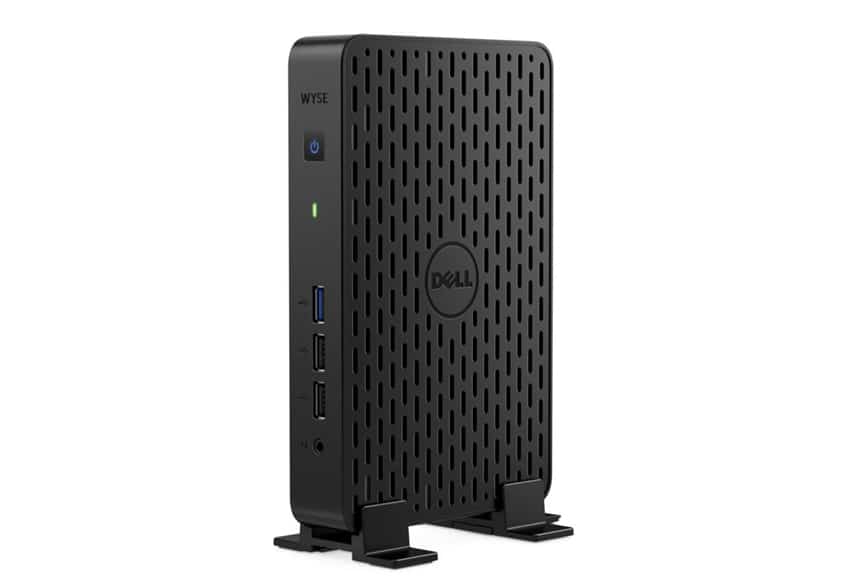Today at Citrix Synergy, Dell Cloud Client-computing announced new thin clients as well as new and updated software solutions, making what Dell is claiming to be the broadest portfolio for virtual workspace solutions. Dell is introducing two new highly secure thin clients the Wyse 7040 and the Wyse 3030 LT. The Wyse 3030 LT is based off of the ultra-secure Dell Wyse ThinOS or new Wyse ThinLinux technology. Along with the debut of Wyse ThinLinux, Dell is upgrading both its thin client OS, ThinOS 8.3, and its thin client management software, Wyse Device Manager 5.7. Dell will be showcasing these new solutions, as well as others, at booth #610 at Citrix Synergy 2016 in Las Vegas, Nevada.

These new, more secure thin clients come on the heels of last week’s announcement of Dell’s new security solutions, the Dell Data Protection | Threat Defense for Windows-based thin clients and Dell Data Protection | Endpoint Security Suite Enterprise. As VDI becomes more and more adopted by the industry, it will increasingly be targeted as a potential way for attackers to send malware and ransomware. Dell is addressing this issue with security systems that can be using in heterogeneous environments and increasing the security of its own VDI solutions.

Designed for Federal and related markets, the Dell Wyse 7040 is a highly secure thin client that also delivers advanced, multimedia-class performance and broad connectivity. Designed for the most demanding virtual workspace customers, the Wyse 7040 is also accredited with major Federal compliance and certification credentials including OPAL-compliant storage options, TAA, Energy-Star and EPEAT. At launch the Wyse 7040 will be configured with Windows Embedded Standard 7p and will be Windows 10 IoT ready. The Wyse 7040 also comes with enhanced security features including Trusted Platform Module (TPM), BitLocker, and Dell’s Data Protection | Threat Defense.
Other Dell Wyse 7040 thin client features include:
- High performance and manageability: The thin client incorporates powerful quad-core 6th generation Intel i5 or i7 processors and enterprise-class management capabilities with Intel vPRO and support for Wyse Device Manager, System Center Configuration Manager and Dell Command Configure.
- Rich communications and connectivity: The Wyse 7040 allows organizations significant flexibility to configure their solution with various display requirements, including support for an UHD “4K” display (3840×2160), or three 2560×1600 displays via daisy chain. The thin client also features a rich level of USB configurability with six USB 3.0 ports, and the capability – either through the BIOS or the Dell Command Configure tool – to lock them down to prevent data leakage, only supporting the use of a keyboard and mouse, and preventing the use of storage or communication devices.
- SecureView functionality: The Dell Wyse 7040 is SecureView capable, the best-in-class, Federal-preferred client virtualization environment that can run multiple virtual desktops, even at different security levels, on just one device.

Having an ultra-secure thin client won’t help if the cost exceeds the companies budget. With this in mind Dell is also introducing the Wyse 3030 LT a secure thin client that is affordable and is designed for a 6-8 year lifecycle. The Wyse 3030 LT can be scaled from only a few users to 10s of 1000s of users and can be configured with either Wyse ThinOS 8.3 or Wyse ThinLinux firmware technologies.
Additional features of the Wyse 3030 LT include:
- Highly Secure: The Wyse 3030 LT thin client includes support for single sign-on and VPN, and is based on the inherently secure, virus-resistant Wyse ThinOS or ThinLinux operating systems.
- Easy Manageability: The solution offers an easy, out-of-the-box setup, with flexible configuration and management via Wyse Device Manager to deliver over-the-air configuration and policy management. With this solution, IT administrators can support Wyse thin clients and select mobile devices from a single console, enable user self-service provisioning and monitor user devices, track asset inventory or enforce policy compliance for thousands of devices.
- Leading Performance and User Experience: The thin client features a dual-core Intel Bay Trail 1.6GHz processor and integrated graphics engine for a smooth, enjoyable user experience including support for two high-resolution displays up to 1920×1200, 60Hz. The solution also offers multiple connectivity options including wired networking or 802.11 a/b/g/n/ac dual band Wi-Fi, two Display Ports, and four USB ports, including one USB 3.0 port for high-speed peripherals.
- Superior energy efficiency: The Dell Wyse 3030 LT consumes less than 12 watts and is Energy Star certified, so organizations can enjoy lower energy consumption costs and reduce their carbon footprint.
Dell also announced an update to its most virus-resistant thin client OS, Wyse ThinOS 8.3. Dell states that ThinOS 8.3 supports a set of updated protocol features from Citrix, VMware, Teradici, and RDP, as well as Windows 10 virtual machines. It also supports Amazon Web Services connections over PCoIP, and is compatible with the latest Wyse management options, including Wyse Device Manager 5.7. And ThinOS 8.3 supports Imprivata’s biometric fingerprint authentication solution so clinicians can quickly and securely access patient data throughout a healthcare facility.
ThinOS is no longer the only OS for Dell’s Wyse thin clients. Dell introduced Wyse ThinLinux today, an OS based on SUSE Linux that is optimized by Dell for thin client environments. Not only does the new ThinLinux feature a simple and intuitive interface it supports a broad list of peripherals including 4k displays, printers, smart cards, and fingerprint readers. It also has broad broker support including Citrix Receiver 13.1, VMware Horizon and Amazon WorkSpaces, and support for unified communication platforms including Skype for Business, Lync 2013 and Lync 2010. Users can setup single sign-on and VPN for additional security.
And finally Dell has upgraded its Dell Wyse Device Manager (WDM) to version 5.7. Dell claims is WDM is the most scalable thin client management software available, with the ability to reliably scale to more than 100,000 devices based on either Windows Embedded Standard, Linux, ThinLinux, Wyse ThinOS, or PCoIP.
New features include:
- Enhanced user interface: The solution features a new, intuitive web-based UI with a simplified user experience, improved workflows and enhanced search capabilities. The new UI can be used to perform actions and save changes using supported browsers including Internet Explorer 11, Chrome v40 and above, and Firefox v30 and above.
- Easy, secure management: WDM 5.7 enables customers to manage endpoints securely using fully encrypted, HTTPS-based transmissions, and features enhanced notification of critical alerts and events for fast troubleshooting. WDM integrates the latest thin and zero client solutions, including Windows Embedded thin clients via Wyse Configuration Manager (WCM).
- WDM can be hosted on-premises and now also in public clouds including Amazon Web Services (AWS) and Microsoft Azure.
Availability
The Wyse 7040 thin client, Wyse 3030 LT thin client, Wyse ThinOS 8.3, Wyse ThinLinux and Wyse Device Manager 5.7 are expected be available in July 2016.




 Amazon
Amazon